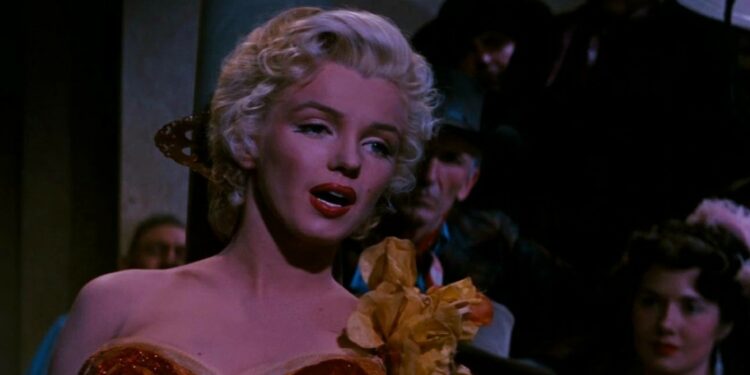Robin Williams, an actor and comedian celebrated for his energetic performances, battled severe depression and eventually took his life in 2014. His struggles weren’t merely chemical or circumstantial; they reflected a deeper, pervasive lack of purpose that gnawed at his identity. Williams, like many men in the modern world, faced the erosion of the warrior spirit—the drive to conquer, to build, to defend something meaningful. In a society where such instincts are often muted or ridiculed, this internal void can become unbearable, leading to despair.
Chester Bennington, the lead singer of Linkin Park, exhibited similar patterns. His lyrics spoke of inner battles, feelings of worthlessness, and disconnection. Despite outward success, Bennington struggled to find personal significance in an industry obsessed with image and superficiality. The absence of a clear purpose—beyond fame and commercial success—amplified his personal demons. These high-profile deaths aren’t isolated tragedies but symptoms of a broader existential crisis, particularly among men disconnected from meaningful, warrior-like roles in society.
For Men: A Crisis of Purpose and the Erosion of the Warrior Spirit

Image via The Orchard
Men like Anthony Bourdain and Kurt Cobain also illustrate this crisis. Bourdain, a celebrated chef and storyteller, epitomized the modern explorer but admitted to struggles with depression and loneliness. His suicide in 2018 was emblematic of a life that, despite external accolades, felt hollow. The underlying issue was a disconnection from a tangible mission—a personal conquest beyond professional milestones. Cobain, with his raw, angst-filled music, similarly sought an outlet but was ultimately overwhelmed by internal emptiness. These men’s deaths reveal a profound need for purpose, for something greater than the self, often absent in contemporary culture.
This isn’t about toxic masculinity or outdated gender norms. It’s about an evolutionary need—men are wired to strive, to protect, to achieve. Modern society, with its focus on comfort, entertainment, and passive consumption, has dulled these instincts. Without a mission—a cause, a challenge—many men spiral into existential despair. They’re left to grapple with the void, filled temporarily with distractions but never fully satisfied, until it becomes unbearable.
For Women: The Fragmentation of Identity and Inner Destruction

Image via 20th Century Studios
Marilyn Monroe, an icon whose beauty and charm captivated the world, represents a different facet of this crisis. Her death in 1962, shrouded in speculation, likely stemmed from an overwhelming sense of emptiness beneath the glamorous veneer. For women, the lack of purpose often manifests not in the absence of a warrior spirit, but in fragmentation of identity. Monroe, celebrated as a sex symbol, was trapped by an image she couldn’t reconcile with her internal needs for acceptance, stability, and genuine love.
Similarly, Whitney Houston and Amy Winehouse struggled with addiction and public scrutiny, masking deeper struggles of purpose and identity. These women navigated a world where societal expectations of beauty, success, and emotional labor conflicted with personal desires for fulfillment and peace. The resulting dissonance drove self-destructive behaviors, as they sought solace in substances, relationships, or approval that never fully addressed the internal void.
The Core Issue: Misaligned Lives in a Modern, Superficial World
| Celebrity | Public Image | Core Struggle | Root Misalignment |
|---|---|---|---|
| Robin Williams | Comedic genius, beloved actor | Severe depression, loss of inner purpose | External validation over deep fulfillment |
| Chester Bennington | Rock icon, voice of a generation | Inner battles with worthlessness, identity crisis | Fame and success masking inner emptiness |
| Marilyn Monroe | Hollywood glamour icon | Struggles with self-worth, identity confusion | Pursuit of fame over authentic self |
| Whitney Houston | Legendary singer | Addiction, personal turmoil | Pressure to maintain image, loss of self |
At the heart of these tragedies lies a single, devastating cause: misaligned lives. Modern society excels at distracting people from the deep work of self-discovery and purpose-building. For men, this often means abandoning the pursuit of challenge and meaningful contribution; for women, it can involve sacrificing genuine fulfillment for external validation. This isn’t about blaming individuals—it’s about recognizing that the environment we’ve constructed often starves the soul, encouraging shallow achievements over lasting meaning.
The real tragedy isn’t just the loss of life; it’s the loss of potential, the stories that could have unfolded if purpose had been cultivated. Men like Williams and Bennington, women like Monroe and Houston, weren’t simply victims of mental illness or fame’s pressures. They were casualties of a system that neglects the inner compass, prioritizing external rewards over inner satisfaction. Understanding this root cause isn’t just an academic exercise—it’s essential for preventing future tragedies and fostering lives grounded in true meaning.
 Follow Us
Follow Us





